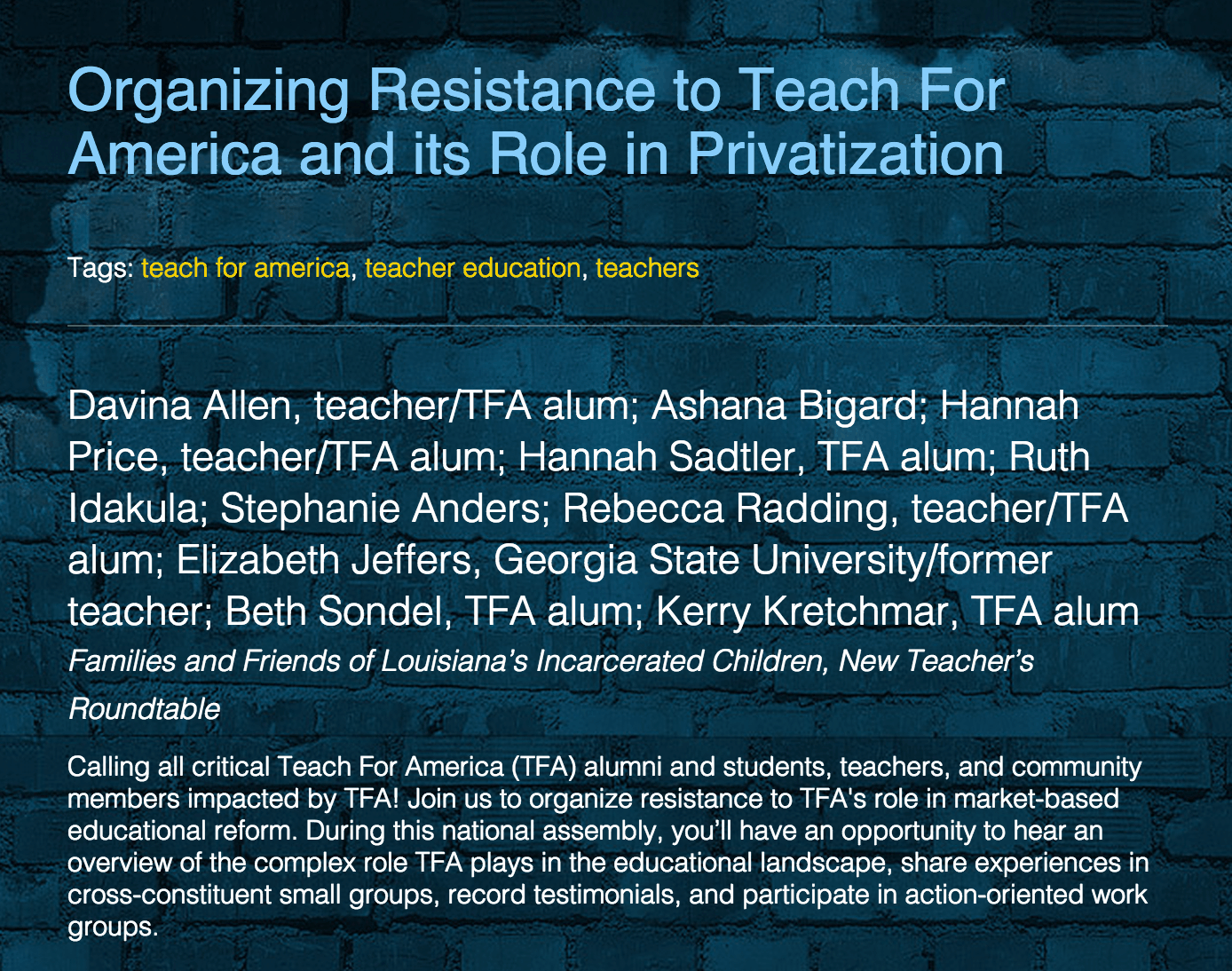For most of New Orleans’ 45,000 public school students, Monday marked the first day of a new school year and NPR education correspondent Claudio Sanchez was in town reporting for a new series of nprEd Team stories focusing on the city’s school reform efforts since Hurricane Katrina.
When I initially heard NPR was planning to focus on our city’s schools, I considered it a good thing. On the whole, I’ve found NPR’s coverage of education issues to be fair and balanced, and therefore saw the series as an opportunity to dispel some of the myths and misinformation out there about New Orleans’ education reform efforts. Unfortunately, my optimism evaporated after hearing Sanchez’s story – “New Orleans Charters Prepare For A Big First Day Of School” – on Tuesday’s edition of All Things Considered.
If you missed Claudio Sanchez’s report on New Orleans charter schools, you can listen to the story above. Below, I outline my three main reactions to the story, including how reporting on New Orleans schools becomes a casualty in the broader war over education reform.

First Things First: Get the Facts Straight
The most egregious error in Sanchez’s story concerns the performance of charter schools in the Recovery School District (RSD). At one point, he claims that “80 percent of the district’s charter schools are D and F schools – among the worst in Louisiana.”
As Danielle Dreilinger at the Times-Picayune quickly pointed out, Sanchez’s numbers were flat-out wrong. Last year, 54% of RSD charters were graded B/C, 21% were graded D/F, and 25% were not issued a grade because they were newly opened schools.
After several listeners brought attention to the error on npr.org, as well as on Twitter, NPR posted a correction on the story’s webpage on Tuesday, and on Wednesday, Melissa Block issued an on-air correction and apology for the mistake.

Later in the piece, Sanchez turns to David Cash, a veteran teacher at McDonogh #35 High School, who opposes charters. Cash says the claim that parents have choice in the post-Katrina school system is “an illusion” and is quoted as saying, “Parents are putting down first, second and third choices – they’re not getting them.”
Of course, Cash is referring to the school preference list parents fill out on OneApp, the RSD-run, city-wide system designed to ensure the enrollment process is fair and equitable for all families. Of the 11,000 students who applied to schools through OneApp earlier this year, over 80% received one of their top three choices. So in fact, most parents are getting one of the their top school choices, but listeners wouldn’t know it because Sanchez never challenges the veracity of Cash’s statement.
Be Wary of Affiliations/Conflicts of Sources
NPR’s Ethics Handbook includes an “Accuracy Checklist” with a bulleted series of “questions to ask before you call any story complete.” One of them is the following:
Do I need to check a source’s “fact” against what others are saying? Advocates can skew things in their favor.
I raise this because while Sanchez notes that “Cash has lived in New Orleans for 21 years and taught in both charter schools and a traditional public school,” he leaves out an important element of Cash’s résumé: he serves on the Executive Council of the United Teachers of New Orleans (UTNO).1 As I discussed in a previous post, UTNO and its parent organization, the American Federation of Teachers, have been involved in recent attempts to malign the RSD’s efforts in New Orleans, including the filing of a specious civil rights complaint in May.

Interestingly enough, Davina Allen, the other reform critic Sanchez interviews for his story, also plays a leading role in the local teachers union. Although we’re told Allen is a physics teacher at a local high school, it’s never mentioned that she also serves as Vice President of Professional Development for UTNO.
On the other hand, Sanchez does point out that,
“Allen was one of hundreds of teachers recruited by Teach For America – young men and women who arrived with high hopes of not just rebuilding, but improving the city schools – a task that even charter supporters like Kenneth Campbell can see is far from complete.”
Sanchez’s comment leaves one with the impression that the high hopes of those Teach For America corps members were later dashed when confronted with the challenges in New Orleans’ schools. And, perhaps that was the impression he got from Allen, who has recently been involved in organizing efforts against TFA.

However, it should be noted that Allen’s perspective is hardly representative of those of us who have worked in New Orleans’ schools through Teach For America.2 In fact, TFA corps members and alumni have played – and continue to play – leading roles in both rebuilding and improving the city’s schools.
New Orleans as Proxy in the War Over Education
Since this piece aired, I was told by someone who spoke with Sanchez that he was “deeply chagrined” by the “80% D or F” error regarding charter school performance. And to be clear, I don’t have the impression that Sanchez is proactively trying to portray New Orleans’ post-Katrina reforms in a negative light.
However, Sanchez’s piece demonstrates why some in the city’s education reform community have developed a sense of “journalism fatigue.” I say this because New Orleans tends to serve as a proxy in the broader war over the direction of public education policy in this country. Often, journalists fly in and build their stories around the loudest, most extreme voices in the debate, folks who apply their preconceived notions and ideologies to the New Orleans context. There have also been plenty of examples of less scrupulous “journalists” who distort New Orleans’ story to further their political agendas. What’s more, the perspectives of those most impacted by the city’s reforms – i.e., public school students and parents – are seldom solicited, nonetheless heard in the reporting. As a result, national coverage of the city’s schools rarely manages to step back from the debate and objectively assess what’s worked, what hasn’t, and what still needs to be done.3
New Orleans’ education reform path over the past decade is complex and – like the city itself – uniquely its own. The question of whether NPR’s coverage of New Orleans schools will be able to reflect that reality is yet to be seen.
- Another element that isn’t noted is that Cash taught at G.W. Carver High School until it was phased out to make way for George Washington Carver Collegiate, the same charter school that is featured at the beginning of the story. ↩
- Full Disclosure: I was a 2002 TFA corps member in New Orleans and served as Davina Allen’s Program Director while on staff at Teach For America – Greater New Orleans. ↩
- One journalist who has generally done a good job at providing an honest, nuanced picture of the city’s reform efforts over the years is John Merrow and his team at Learning Matters. ↩


6 Comments
Leave a Reply